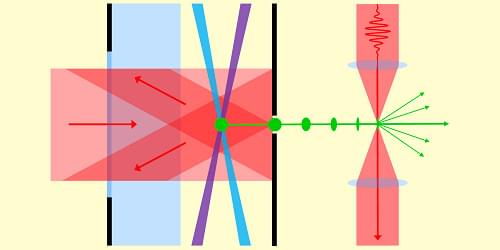A method for producing ultrashort, ultracold electron bunches could improve the resolution of electron-based imaging methods.


In this Video I discuss if future of AI is in open-source.
The Leaked Document: https://www.semianalysis.com/p/google-we-have-no-moat-and-neither.
The Book: When The Heavens Went on Sale: https://amzn.to/3Il3rNF
Vicuna Chatbot: https://chat.lmsys.org.
00:00 — Google Has No Moat.
02:01 — A Brief History of Open-Source AI
04:03 — Is Future Open Source?
05:52 — Risks of Open Source.
07:41 — Linux is a good example.
08:54 — Soon OpenAI won’t matter.
10:14 — Giveaway.
Support me at Patreon: https://www.patreon.com/AnastasiInTech.
To participate in the GIVEAWAY:
Step 1 — Subscribe to my newsletter https://anastasiintech.substack.com.
Step 2 — leave a comment below smile
I will select 3 winners smile

Scientists have typically used precious metal catalysts, such as platinum to accelerate the separation of water into hydrogen and oxygen. The Curtin team found that by adding nickel and cobalt to cheaper catalysts, they could enhance their performance, making them worth exploring as a commercially viable alternative. The researchers published the results of their findings in the journal Nano Energy.



Hydrogen? 🤔
CEO — Angelo Kafantaris discuses the various components of Hyperion and the space age technology in the XP-1. This is just the beginning of what is to come!

A Google AI document was leaked a few days ago, with groundbreaking revelations where the tech giant admits to being outpaced by open source AI! This video takes you through the details of the leak, highlighting how open source solutions are rapidly closing the quality gap and are becoming more capable, faster, and more private than the AI models developed by industry leaders like Google and OpenAI. We delve into what this means for the future of AI development, focusing on the role of open-source models, LoRA (Low Rank Adaptation), and the growing influence of public involvement.
The full article can be found here:
https://natural20.com/google-ai-documents-leak/
